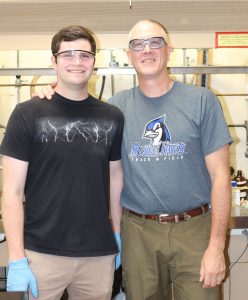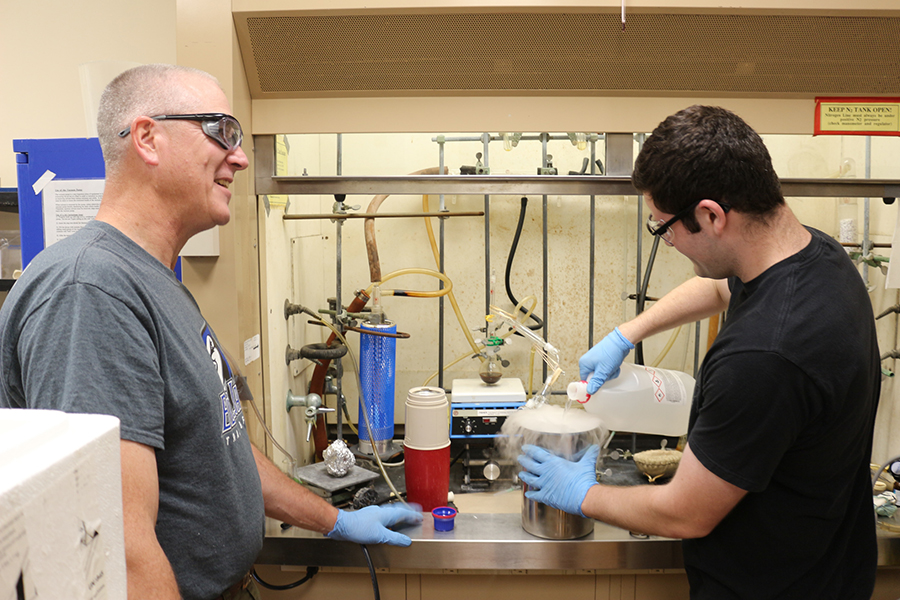An Elizabethtown College Pre-Med student is gaining valuable experience this summer in the Musser labs, working hand-in-hand with a Chemistry faculty mentor to research new methods of synthesizing substituted porphyrins in high yields.
The independent student research and collaboration with an Etown faculty mentor, is part of the Summer Scholarship, Creative Arts and Research Projects (SCARP) program.
Title of Research
Synthesis of lipid-appended porphyrins
Student Researcher
Will Davis ‘24 – Biochemistry and Molecular Biology major
Faculty Mentor
Thomas Hagan, Associate Professor of Chemistry
What are you researching?
Will: I am finding new methods to synthesize substituted porphyrins in high yields. Porphyrins are found in heme which is found in hemoglobin, an important and fascinating molecule! 
One of the main focuses of my project is learning how to better harness the laboratory microwaves by performing several reactions at varying temperatures and hold times. The microwaves increase the reaction rate by raising the heat and pressure at which the reaction is performed, however, we have to find the “sweet spot.”
Why did you choose this topic?
Will: I am a premed student and very interested in the human body. I chose to perform research for Dr. Hagan because this topic is very interdisciplinary.
Our research also serves as the root to photodynamic therapy. Photodynamic therapy can be used to treat skin cancer in a very efficient manner. This research topic has already taught me a large amount about skin cancer and cancer in general, helping me become a more well-rounded pre-med student!
What is the most interesting aspect of this research?
Will: The application of porphyrins in photodynamic therapy is the most interesting facet of my research. Additionally, the field of microwave-assisted synthesis (MAS) is fairly new. I am able to have hands-on experience with the equipment and develop new parameters for reactions.
How has Professor Hagan helped you throughout this experience?
My mentor, Dr. Hagan, has been very hands-on, which is amazing! Dr. Hagan has taken a lot of time to teach me various lab methods and how to properly use the lab instrumentation. However, more importantly, he has shown me ways to troubleshoot when I received unexpected or lacking results.
Hear from the Faculty Mentor – Thomas Hagan
“Will has risen to the challenge of immersing himself in the research experience, and I believe he has continued to grow as an independent learner,” said Hagan. “Students learn best by doing. By bringing students into the research laboratory, which is a different animal than the typical lab experience associated with a lecture course, they learn how to apply the principles they have garnered through their curricular experience.”
“Through the SCARP experience, students gain an appreciation and understanding of the scientific method at work, which ultimately gives us a greater understanding of the world around us.”

